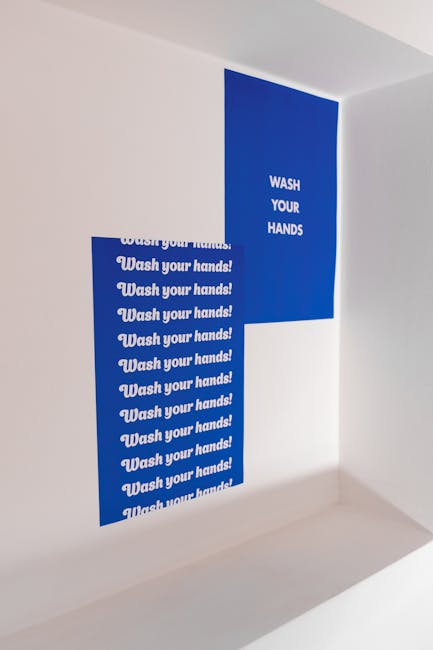Why YouTubers Quit: A Deep Dive into Burnout, Algorithm Changes, and the Reality of Online Fame
The Allure and the Agony: Why YouTubers Walk Away
The shimmering promise of YouTube fame – a loyal fanbase, brand deals, and financial independence – lures millions. But behind the polished thumbnails and upbeat intros lies a reality far more complex. Increasingly, we see YouTubers quitting, leaving behind the platform that once defined their lives. This isn’t always a dramatic, headline-grabbing exit; sometimes it’s a quiet fade-out, a gradual disengagement from the demanding world of content creation. This article delves deep into the reasons why YouTubers choose to leave, exploring the multifaceted challenges that contribute to burnout, disillusionment, and ultimately, the decision to hang up their microphones.

The Crushing Weight of the Algorithm: A Constant Battle for Visibility
YouTube’s algorithm is a fickle beast. What works today might be buried tomorrow. This unpredictability creates a constant pressure on YouTubers to stay ahead of the curve, constantly experimenting with content formats, titles, and thumbnails to appease the ever-changing whims of the algorithm. This relentless chase for views and engagement can lead to immense stress and anxiety. The fear of losing subscribers, seeing their videos perform poorly, and ultimately losing their income source is a significant factor driving many creators to burnout.
The Mental Health Toll of Constant Competition
The YouTube landscape is fiercely competitive. New creators emerge daily, vying for attention in a saturated market. This intense competition breeds anxiety and self-doubt. YouTubers constantly compare themselves to others, evaluating their own success against often unrealistic and curated portrayals of others’ achievements. This creates a toxic environment that can severely impact mental well-being.
Financial Instability: The Unstable Foundation of YouTube Success
While some YouTubers achieve significant financial success, many struggle to make a consistent living. Ad revenue fluctuates, sponsorship deals are unpredictable, and the constant need to produce high-quality content requires significant time and effort, often without guaranteed financial returns. This financial instability can be incredibly stressful, leading many creators to seek more stable career paths.
Beyond Ad Revenue: The Challenges of Monetization
Monetization on YouTube is multifaceted. While ad revenue is a primary income stream, many YouTubers rely on merchandise sales, affiliate marketing, and sponsorships. However, each of these avenues presents its own challenges. Building a successful merchandise business requires additional effort and investment. Affiliate marketing can be competitive and requires careful selection of products. Securing sponsorships requires building strong relationships and negotiating favorable deals. The complexities of diverse monetization strategies can overwhelm creators and contribute to their decision to quit.
Burnout: The Inevitable Consequence of an Unsustainable Pace
Creating consistent, high-quality content is incredibly demanding. YouTubers often work long hours, juggling filming, editing, marketing, and community engagement. This unsustainable pace can lead to burnout, characterized by exhaustion, cynicism, and feelings of reduced accomplishment. The constant pressure to perform and maintain a positive online persona can take a significant toll on mental and physical health.

The Illusion of Perfection: The Pressure to Maintain an Online Persona
YouTubers often present a carefully curated version of themselves online, hiding the challenges and struggles they face. This pressure to maintain a flawless online persona can be incredibly stressful and unsustainable in the long run. The constant need to appear positive, upbeat, and successful can lead to feelings of isolation and inadequacy.
Lack of Work-Life Balance: The Sacrifices Required for YouTube Success
For many YouTubers, their channel becomes their life’s work. This lack of work-life balance can impact personal relationships, mental health, and overall well-being. The constant demands of content creation can leave little time for other aspects of life, leading to feelings of resentment and burnout.
The Shifting Sands of Trends: Staying Relevant in a Fast-Paced World
Trends on YouTube change rapidly. What is popular today might be outdated tomorrow. This constant need to adapt and stay relevant adds another layer of pressure to an already demanding environment. The need to constantly research, learn, and experiment with new formats can be exhausting and contribute to feelings of inadequacy.
Dealing with Negative Comments and Online Harassment
Online harassment is a significant problem for YouTubers. Dealing with negative comments, hate speech, and cyberbullying can take a toll on mental health and contribute to the decision to quit. The constant exposure to negativity can be disheartening and overwhelming.
The Importance of Self-Care and Setting Boundaries
For YouTubers to thrive, self-care and establishing healthy boundaries are crucial. This includes setting realistic expectations, prioritizing mental health, and taking breaks when needed. Building a support network of fellow creators and friends can provide invaluable emotional support.
Finding Alternative Career Paths: Moving On from YouTube
Many YouTubers who choose to quit find success in alternative career paths. Their experience in video production, editing, marketing, and community building provides a valuable skill set transferable to various industries. Some transition to other platforms, focusing on different content formats or audiences. Others pursue careers in filmmaking, marketing, or entrepreneurship.

The Future of YouTube and Content Creation
The challenges faced by YouTubers highlight the need for a more sustainable and supportive ecosystem for content creators. Platforms need to implement measures to address the issue of algorithm manipulation, provide better support for creators’ mental health, and foster a more positive and respectful online community. The future of YouTube and content creation depends on creating a more equitable and sustainable environment for all creators.






